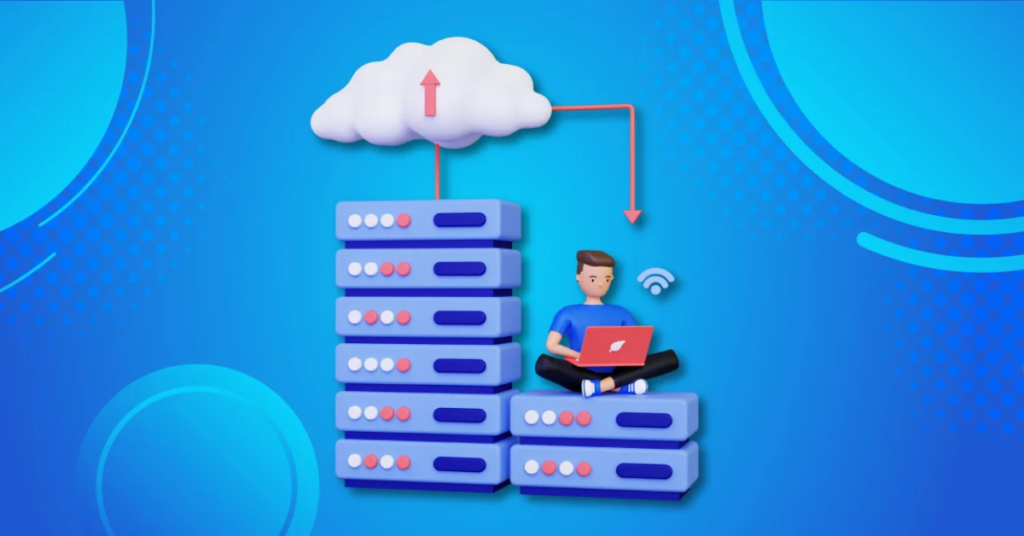In today’s digital pace, control, flexibility, and performance are essential for businesses that strive to keep up with evolving figures online. Among options available, Linux dedicated servers are emerging as one of the more powerful and cost-efficient solutions.
If you are in charge of a major eCommerce website, a multi-user web application, or even enterprise-class applications, it is evident that a Linux dedicated server will provide unmatched reliability, control, and scalability when compared to shared or virtualized hosting. But what exactly is it, and why should you consider it?
A Linux dedicated server is an example of dedicated hosting where an organization leases one entire server which operates on Linux, where other servers do not share it, thus using up all its resources. A Linux dedicated server is singularly tailored to a particular customer needing such other resources. This is controllable as in your case, it comes with its supreme computing capability, storage, and even internet bandwidth.
What Reasons Are There to Use a Linux Dedicated Server?
1. First in Command, Full Authority, and Root Access.
Business people keen on purchasing a Linux Dedicated Server do so because of full control of the server. Besides root access, you can control the server as you wish by installing custom applications, modifying settings, executing scripts, and much more. This is perfectly suited for developers or IT personnel that require a customized tailored server subsystem.
2. Performance Optimization
True, you do not share the Server with any other user, but, it’s also true that performance is incomparable to anything else you’ll find anywhere. Unlike shared hosting, there are no noisy neighbors exhausting your bandwidth or CPU cycles alongside you. This makes dedicated hosting ideal for high-traffic websites, gaming servers, streaming services, or critical business platforms.
As further boosters, performance and resilient storage are paired with a backup cloud server or leverage hybrid architecture.
3. Uptime and Trustworthiness
For many users, their choice of hosting is based on uptime statistics. Afterspent time figuring out uptime guarantees, performance caveats etched in fine print and assuming an obstacle course checking every piece of documentation provided with downright unyielding language concerning numerics, imagine the satisfaction. A well managed Linux dedicated server can be expected to run indeed for months and years at a time while boasting.
With the use of cloud computing, reliability is further improved with the deployment of redundancy strategies and protocols for disaster recovery.
4. Cost Efficiency with Open-Source Freedom
A Linux-based dedicated server is an economical option since it is free and open-source software, notably unencumbered by licensing costs associated with Microsoft’s servers. This provides tremendous savings over Windows-based servers.
And it doesn’t stop there. The Linux ecosystem includes a plethora of free tools such as the web servers: Apache and Nginx and the databases: MySQL and PostgreSQL. If you’re operating on a tight budget, Linux amplifies your returns while minimizing costs.
5. Enhanced Security
Linux is among the most secure operating systems and is renowned as one of the most secure operating systems. Firewalls, customizable access controls, and a large knowledgeable support community ensure that a Linux cloud setup or dedicated server can be contained to even the most stringent compliance requirements.
Organizations that deal with sensitive customer data, payment details, or proprietary business information actively seek Linux due to the operating system’s hospitable design that is secure, transparently auditable, and easy to patch.
6. Expansion with Cloud Resources
Spending on services like cloud backup increases and data is accessed on a personal computer or laptops from anywhere at any time. This allows the integration of a Linux dedicated server with other resources.
Combining the strength of physical hardware and servers residing in the cloud presents a synergistic opportunity where infrastructure capabilities receive a boost with machine learning making it more resource adaptive as per the workload; all these possibilities allows the business they support to evolve with ease.
7. An Outstanding Choice for Developers and Technical Staff
A dedicated server running Linux is ideal for developers considering that they get full access to sub-servers along with available programming languages such as Python, PHP, Java, and Ruby. Git frameworks can be used for the deploying while custom scripts can also be created to automate or contain systems using Docker or Kubernetes.
Having a skilled technical team helps Linux servers take over, especially if they adopt a DevOps mindset, as these frameworks come with endless possibilities enabling efficient server provision and use optimization.
Closing Statements
A Linux dedicated server gives a business more than just a cheap hosting option. These servers come ready to help businesses that require maximum speed, precise security, total control, and rapid scaling. Supplying reliable and fully functioning infrastructure is the provided advantage of dedicated Linux hosting, making it suitable for companies of all sizes like versatile-moving SaaS or content-rich market places.When used alongside cloud server technologies or assimilated into your Linux cloud infrastructure, the advantages increase. You obtain strong, scalable, inexpensive, and flexible hosting services aligned with the progress of your organization.



